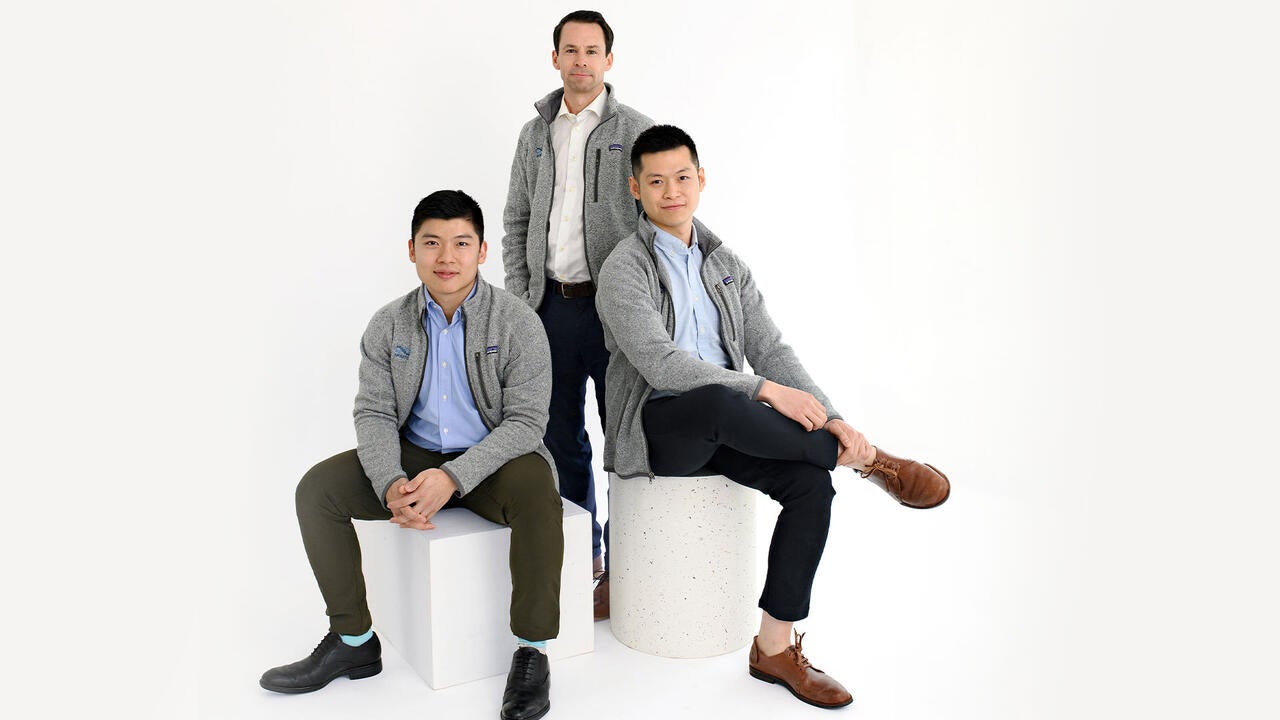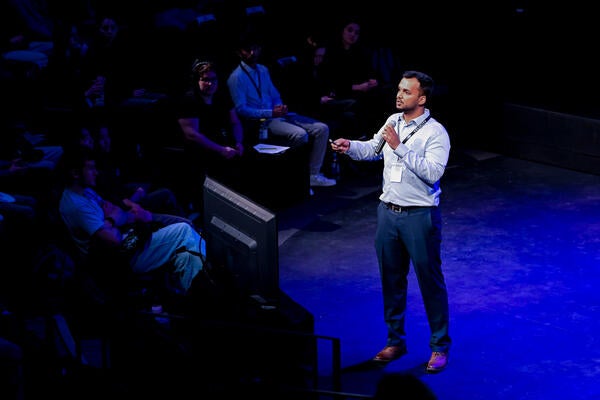
The future is now for sustainable packaging
Nanotech startup raises $6.5 million USD seed funding to produce its novel coating for biodegradable materials at scale

Nanotech startup raises $6.5 million USD seed funding to produce its novel coating for biodegradable materials at scale
By Naomi Grosman VelocityNfinite Nanotech has raised $6.5 million USD in seed funding to scale its nanomaterial product: a coating for sustainable and biodegradable food packaging that will help divert plastic waste from landfills. The University of Waterloo startup is developing an ultrathin and high-performance material for consumer-packaged goods, like granola bar wraps and potato chip bags, that keeps them fresh longer without the use of excessive non-biodegradable plastic packaging.
 With Nfinite’s nanocoating, which is applied during the packaging production process, companies can now use more sustainable packaging materials without freshness and product shelf life being compromised. This helps reduce the dependency on plastic food packaging which is adding to the more than nearly 400 million tonnes of plastic waste produced every year, according to the World Economic Forum.
With Nfinite’s nanocoating, which is applied during the packaging production process, companies can now use more sustainable packaging materials without freshness and product shelf life being compromised. This helps reduce the dependency on plastic food packaging which is adding to the more than nearly 400 million tonnes of plastic waste produced every year, according to the World Economic Forum.
Backing by global clean tech investors and sustainable packaging materials producers signals the massive impact the startup can have on the pervasive plastic problem of the modern world.
“Plastic is everywhere. It touches almost everything we use nowadays and that has created a big problem,” says Chee Hau Teoh (MASc ’20), CEO and co-founder of Nfinite Nanotech. “There are millions of tons of plastic waste produced a year. To make it worse, less than 10 per cent of that is being recycled and the remaining either goes into landfills or the ocean.”
Teoh along with his co-founders Dr. Kevin Musselman, scientific advisor and professor of mechanical and mechatronics engineering and Jhi Yong Loke (MASc ’21), chief technology officer, developed the research into a market-ready product at Waterloo with support from Velocity — Waterloo’s flagship incubator. Since 2008, Velocity has fostered more than 400 companies, cumulatively creating $26 billion USD in enterprise value.
The startup collaborates with major packaging manufacturers, to accelerate the global adoption of its technology, and they have bold visions for the future.
“We are going to scale our operations and our market position as pioneers in eco-friendly packaging,” Teoh says. “This is an opportunity to deepen our partnerships with our customers and continue to deliver solutions that meet the urgent need for sustainability in our world today.”
He adds that the technology can have broader applications beyond sustainable packaging including batteries, solar cells and semiconductors.
“Developing a novel technology into a market-ready product requires a steadfast mindset and strategy bold enough to address a global crisis, like the problem of plastic waste,” he says.

Chee Hau Teoh, CEO of Nfinite Nanotech participates in a Velocity panel discussion
“This problem demands not only technical innovation but also a deep understanding of the ecosystem we aim to transform. We listen intently to our customers to ensure we are solving the right problems,” Teoh explains. “Bringing a physical technology out of the lab to revolutionize a traditional industry like packaging requires a high caliber of perseverance. And our journey is paved with grit, humility and dependability.”

Read more
Velocity Pitch Competition winner Grease Tech brings industrial machinery maintenance into the 21st century

Read more
Startup Setori raises seed round, hires all University of Waterloo team to build AI companion for Gen Z

Read more
Laura Zizzo, co-founder of Manifest Climate, helps organizations navigate and plan for climate risk and mitigation
The University of Waterloo acknowledges that much of our work takes place on the traditional territory of the Neutral, Anishinaabeg and Haudenosaunee peoples. Our main campus is situated on the Haldimand Tract, the land granted to the Six Nations that includes six miles on each side of the Grand River. Our active work toward reconciliation takes place across our campuses through research, learning, teaching, and community building, and is co-ordinated within the Office of Indigenous Relations.